There’s something special about sipping a warm cup of Turkish herbal tea, especially when it’s made with time-honored herbs passed down through generations. The comforting beverages are not only relaxing drinks but also deeply rooted in Anatolia’s cultural tradition, which is based on natural healing and everyday routine. It could be a refreshing mountain mint or relaxing chamomile, but every cup is a tale of wellbeing and tradition.
In this guide, we are going to discuss the benefits of the well-known Turkish herbal teas and present their authentic recipes as well as provide recommendations on how to select the best blends. Whether you’re looking to support digestion, boost immunity, or enjoy a moment of peace, this article is your gateway into the world of Turkish herbal teas, where wellness meets flavor, naturally.
What Are Turkish Herbal Teas? Cultural and Historical Perspective
The Ancient Anatolian Origins of Herbal Healing
Turkish herbal teas (bitki çayı) trace their roots back to ancient Anatolia, where local herbs were more than just kitchen ingredients – they were remedies passed down through generations. Folk healers had long relied on native plants to enhance wellness, treat everyday maladies, and restore equilibrium in everyday life long before modern medicine. The practices would later affect Ottoman pharmacology, where they incorporated tradition with early science.
Herbal Tea vs Turkish Black Tea: What’s the Difference?
Unlike regular Turkish black tea, which comes from the Camellia sinensis plant and contains caffeine, herbal teas are made from dried flowers, leaves, roots, or seeds. They are naturally caffeine-free, making them the ideal option at any time of day, whether for morning zen, mid-day relaxation, or bedtime unwind.
Why Herbal Teas Are a Daily Ritual in Turkish Homes
Herbal teas are not just a drink in Turkish households; they are a social construct. Ranging from soothing chamomile after meals to thyme or linden as an offering to the visitors, every area has its own unique combinations that mirror the local plants and culture. To unwind, to digest, or just out of hospitality, a hot cup is never out of reach.
7 Best Turkish Herbal Teas with Authentic Recipes for Health & Comfort
Turkish herbal teas are a combination of natural healing and rich tradition from ancient times to wellness practices today. So, what are the most beloved kinds, the science-proven advantages, and the way they help digestion, the immune system, and sleep improvement? Let’s discuss everything:
1. Linden Flower (Ihlamur)
Linden tea is derived from the dried flowers of the linden tree, which has heart-shaped leaves and sweet-smelling, yellow flowers. The flowers are picked and dried to make a light, fragrant herb infusion. This tea is a precious household staple in Turkey, particularly in the colder seasons, and is gentle and aromatic. Historically used to relieve the symptoms of flu and nervousness, linden is used to soothe the tensed muscles and tranquilize the nervous system.
Health Benefits:
- Sleep Support: Research shows that linden contains flavonoids and volatile oils that may reduce cortisol levels, helping promote deep, restorative sleep.
- Anti-Inflammatory Power: Rich in antioxidants like quercetin, it helps fight oxidative stress and supports long-term health.
Recipe:
- Boil water: Bring 1 cup of filtered water to a gentle boil.
- Steep the flowers: Add 1 tablespoon of dried linden flowers. Cover and let it steep for 8–10 minutes.
- Serve warm: Strain and enjoy as is, or add a spoonful of honey for extra throat-soothing comfort.
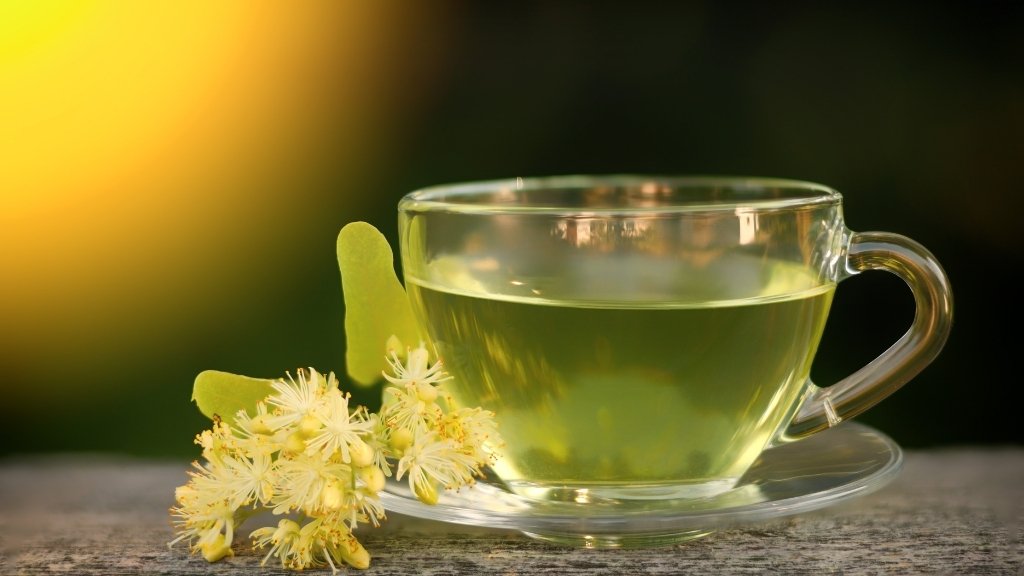
Pro Tip: Drink 30–60 minutes before bed for best sleep-enhancing effects.
2. Sage (Adaçayı)
The fuzzy, silver-green leaves of the perennial herb Salvia officinalis, native to the Mediterranean region, are used to make sage tea. It has a high essential oil content, which gives it a strong aroma and astringent taste. It has a potent medicinal value. Often enjoyed after meals, it’s known for easing bloating, gas, and indigestion.
Health Benefits:
- Digestive Enzyme Booster: Studies reveal that sage stimulates bile and enzyme production, helping break down food efficiently.
- Antimicrobial & Antioxidant-Rich: Packed with polyphenols, sage may fight harmful bacteria while protecting cells from inflammation-related damage.
Recipe:
- Heat water: Bring 1 cup of water to just below a boil.
- Add sage: Use 1 teaspoon of dried sage leaves. Let steep for 5–7 minutes, covered.
- Enhance flavor: Add a splash of lemon or a bit of honey to balance its strong, slightly bitter notes.
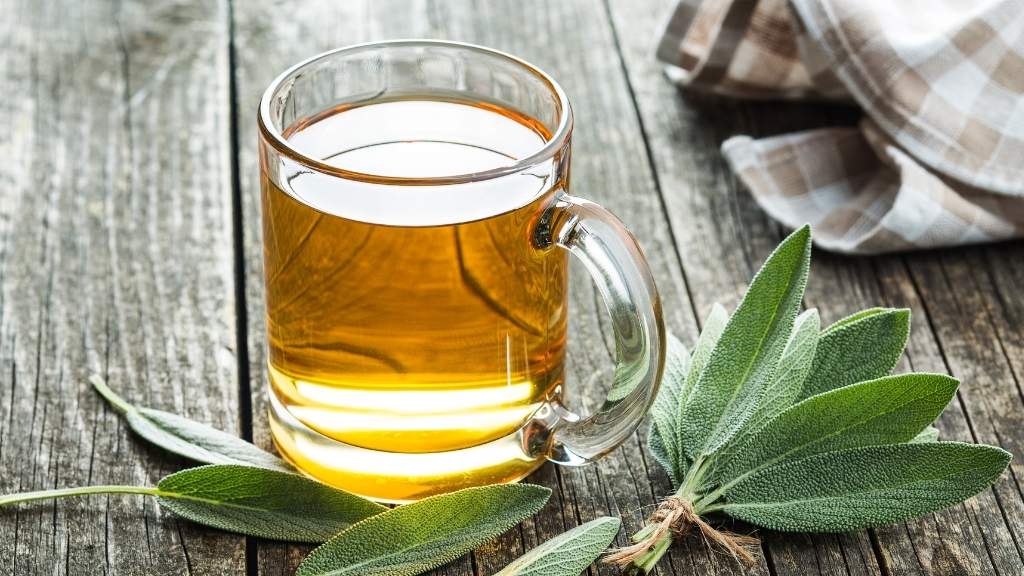
⚠️ Caution: Because of its potency, it’s wise to consume in moderate amounts – especially if pregnant or on medication.
3. Chamomile (Papatya)
Chamomile tea is a herbal tea derived from the dried flowers of the Matricaria chamomilla plant, which are daisy-like. It has a gentle floral aroma and a golden color that people love to use during relaxation and bedtime. This tea is light, flowery, and highly soothing; it is commonly used to relieve stress and to sleep as well as menstrual pain.
Health Benefits:
- Relaxation & Hormonal Balance: Its apigenin content binds to brain receptors, reducing anxiety and improving sleep quality.
- Calming Cortisol Naturally: Like linden, chamomile also helps reduce stress hormones, making it ideal for nighttime.
Recipe:
- Boil water: Use freshly boiled water (1 cup).
- Steep chamomile: Add 1 tablespoon of dried chamomile flowers and steep for 6–8 minutes.
- Strain & sip: Enjoy plain or sweeten lightly. A drop of honey pairs well.
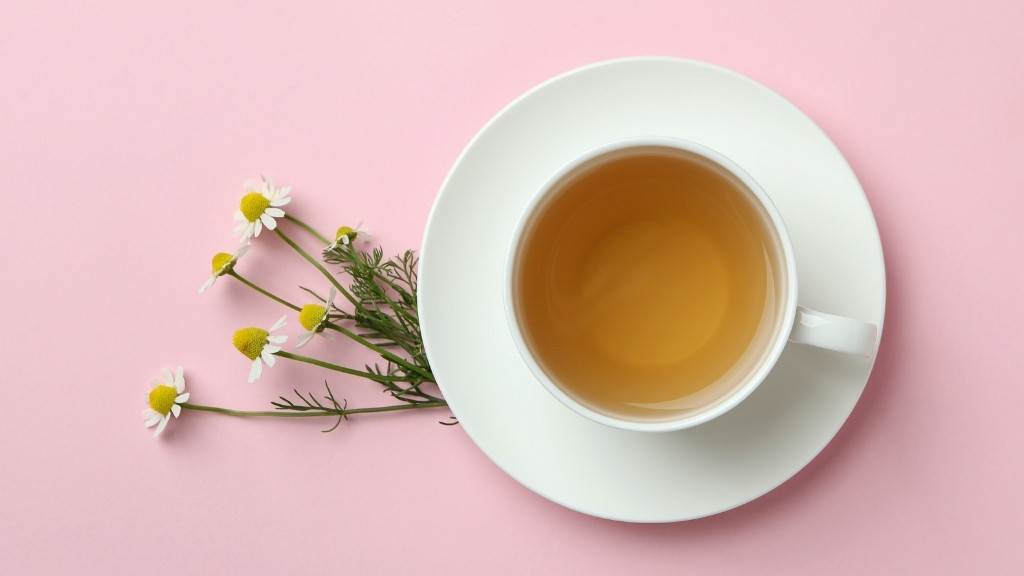
It is a bedtime ritual in most Turkish households and a favorite of women who use it to relax and improve their health.
4. Rosehip (Kuşburnu)
Rosehip tea comes from the bright red fruit of the wild rose bush, harvested just after the flowers drop their petals. The hips are dried and steeped to create a tart, vibrant brew rich in natural nutrients. Tangy, bright, and bold in color, rosehip tea is a vitamin C powerhouse and a wellness lover’s favorite.
Health Benefits:
- Immune Support: According to PubMed-backed studies, rosehip’s high vitamin C strengthens immunity, especially during flu season.
- Antioxidant Armor: Its flavonoids protect against oxidative damage, supporting healthy skin and overall wellness.
Recipe:
- Prepare the hips: Use 1 tablespoon of dried rosehips per cup.
- Simmer gently: Add to boiling water, reduce heat, and simmer for 10–12 minutes.
- Strain & enjoy: Serve warm, optionally with dried hibiscus petals for an antioxidant boost.
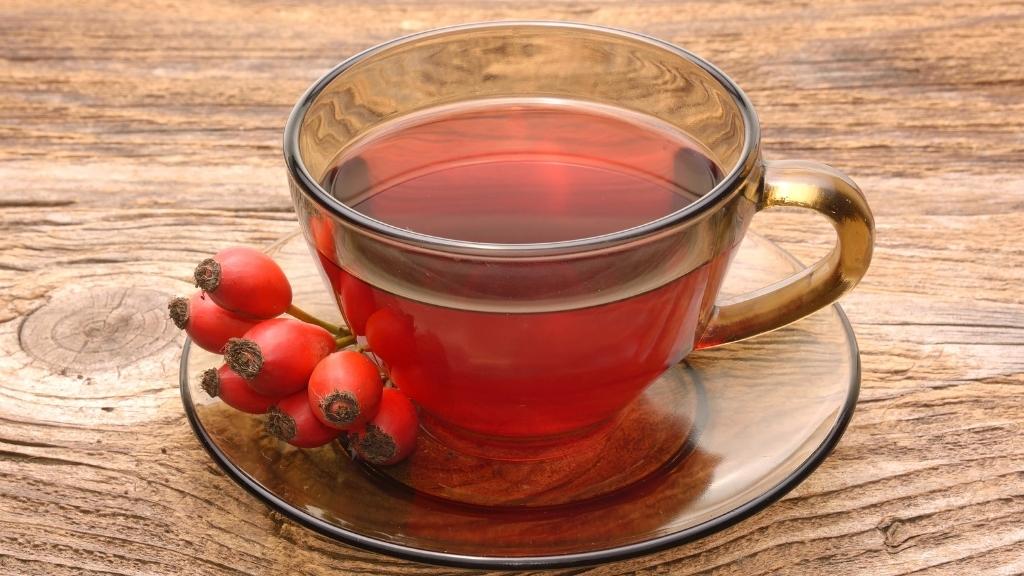
Immune Tip: Great to drink during cold and flu season.
5. Thyme (Kekik)
Thyme tea is prepared using the leaves and flowering tops of a plant known as Thymus vulgaris, which is a small shrub with an assertive aroma and a grounded taste. It is an ancient treatment that has its origins in Mediterranean folk medicine. Spicy and undoubtedly herbal, thyme tea is a secret in the Turkish herbal medicine box.
Health Benefits:
- Respiratory Relief: Often used for coughs, congestion, and bronchial discomfort.
- Digestive Supercharger: Like sage, thyme enhances bile flow, supporting digestion and nutrient absorption.
Recipe:
- Boil & steep: Add 1 teaspoon of dried thyme to 1 cup of hot water. Steep for 5 to 6 minutes.
- Flavor option: A squeeze of lemon enhances its grounding taste.
- Strain well: The essential oils in thyme are strong – keep the brew light if you’re new to it.
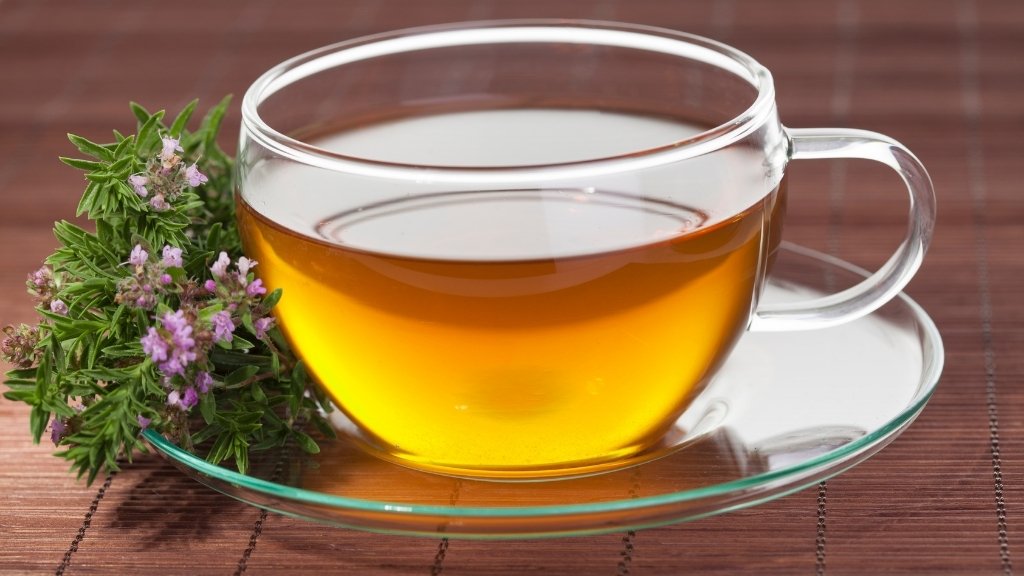
Tip for Colds: Breathe in the steam while sipping to ease nasal congestion.
6. Turkish Apple Tea
Turkish apple tea is traditionally made from dried apple pieces and peels, sometimes blended with hibiscus, cinnamon, or cloves. It’s fruity, tangy, and naturally sweet, though commercial versions are often instant powders. Although popular in tourist cafes, real Turkish apple tea is more than a sweet treat. When made authentically with dried apples, cinnamon, and hibiscus, it’s both comforting and mildly beneficial for digestion.
Health Benefits:
- Gentle Digestive Aid: Apples are rich in pectin, supporting healthy gut flora.
- Soothing & Sweet: Hibiscus adds antioxidants, while cinnamon helps stabilize blood sugar.
Recipe:
- Simmer blend: In a pot, combine 1 tablespoon of dried apple pieces, a small stick of cinnamon, and 2-3 dried hibiscus petals. Simmer for 10–12 minutes.
- Sweeten if needed: Add honey to taste after removing the tea from the heat.
- Serve hot or cold: It’s equally delicious, whether iced on warm days or served warm.
Curious to try this cozy Turkish Apple Tea at home? Click here for the full step-by-step recipe! 🍎☕
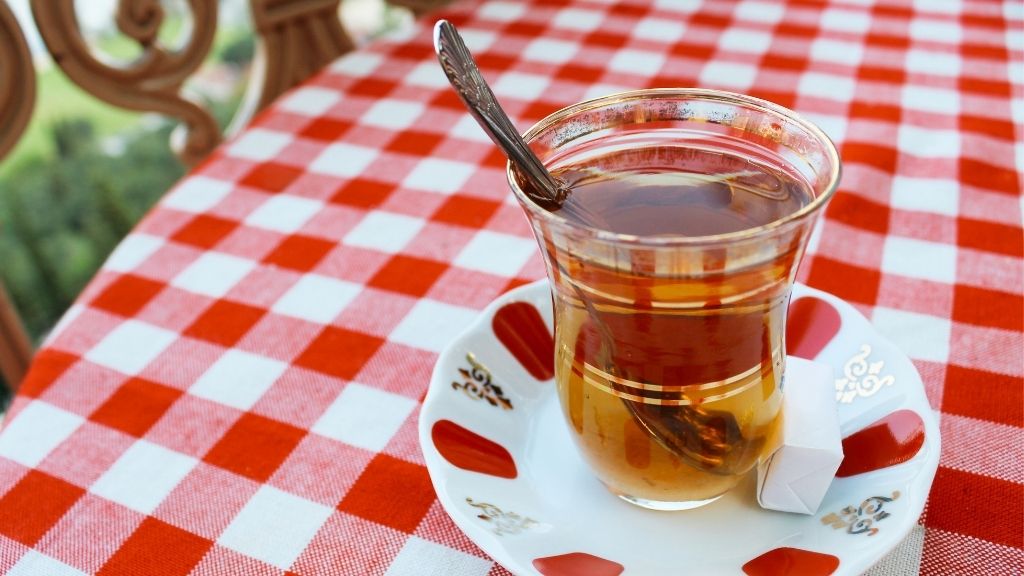
Digestive Bonus: Great after meals to support a healthy gut.
7. Mixed Herbal Blends (Bitki Çayı)
Bitki çayi is a mixture of several Turkish herbs (such as linden, sage, chamomile, thyme, and others) created to achieve particular health outcomes. Such mixtures are frequently prepared by herbalists or homebrewed according to centuries of folk knowledge. Turkish people tend to mix bitki çayi according to their requirements – to sleep, to get energy, to detoxify, or to digest.
Health Benefits:
- Tailored Benefits: These blends may include combinations of linden, sage, chamomile, and others to balance the body.
- Traditional Wisdom Meets Modern Wellness: Many Turkish tea houses still ask, “What are you feeling?” before preparing a custom herbal blend.
Recipe:
- Choose your purpose: For sleep – combine linden, chamomile, and sage. For digestion – use sage, thyme, and apple.
- Steep thoughtfully: Use 1 tablespoon total of your custom blend in 1 cup of hot water. Steep for 7–10 minutes, covered.
- Drink mindfully: Strain and enjoy while relaxed to enhance the therapeutic effects.
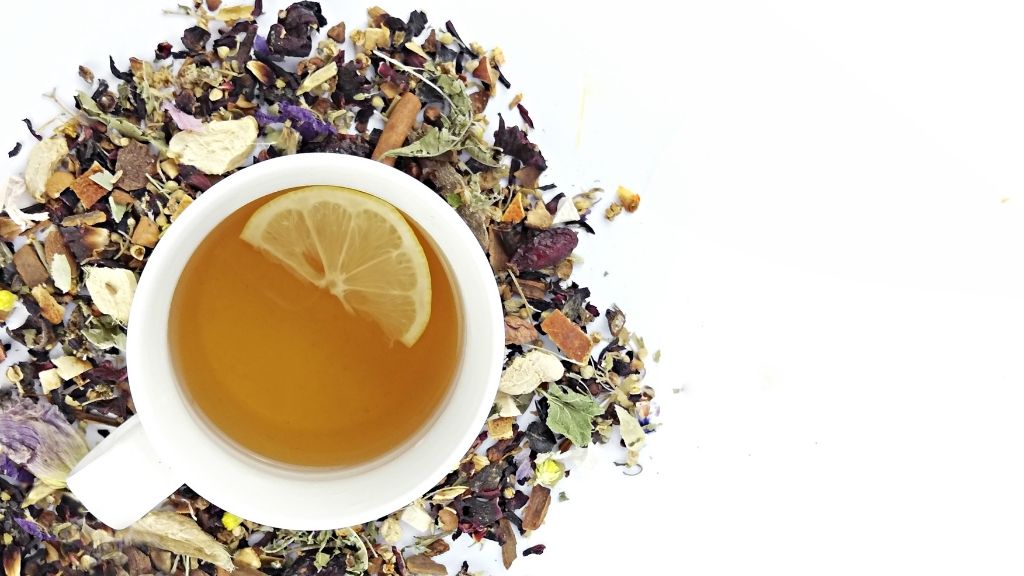
These mixes are perfect for those new to healing herbs, as they allow you to enjoy a wider range of healing herbs in a single steep.
Respect the Strength of Nature
Although Turkish herbal teas are safe, they might trigger allergies or interfere with medicines. It is always advisable to begin with small portions, particularly when pregnant or having chronic illnesses.
Herbs like Sage and Thyme are powerful. Just because they’re natural doesn’t mean they’re risk-free – always respect their strength. – Turkish Herbalist Wisdom.
How to Brew Turkish Herbal Tea Powder the Right Way
An easy alternative is to use Turkish herbal tea powder, which is far more concentrated than loose-leaf mixtures. To balance the flavor, you should use only half as much as you would use traditional herbs, which are normally 1/2 teaspoon per cup. The powders should always be of a recognized brand with no fillers or artificial flavors added to them so that they are pure and effective.
- Enhance the Taste Naturally: Add a drizzle of honey, a splash of fresh lemon, or a pinch of cinnamon for a soothing, flavorful experience.
- Store with Care: Keep your tea powder in an airtight glass jar away from heat and sunlight to preserve its aroma and effectiveness.
- Steep, Don’t Boil: Avoid boiling the powder directly. Instead, steep it gently in hot (not boiling) water for 5–7 minutes to maintain its healing properties and subtle notes.
Where to Buy Genuine Turkish Herbal Teas (Locally & Online)
It isn’t easy to find real Turkish herbal teas, and there are a lot of mass-produced blends that are made with the priority of convenience over quality. The trick is to select well-known Turkish brands that produce pure and natural products and apply traditional processing techniques.
- Top Turkish Brands to Trust: Look for names like Doğadan and Çaykur Herbal Line, known for their quality sourcing and commitment to traditional herbs.
- Reliable Online Stores: Reputable websites such as GrandBazaarist.com and Amazon (always double-check the origin and ingredient list) offer international shipping and verified products.
- Avoid Fakes & Fillers: Skip teas with artificial flavors, added sugars, or colored powders. Ingredient transparency and certifications that verify authenticity are always to be checked.
Regardless of whether you order herbal tea in Istanbul or in other countries, finding the right tea guarantees that you enjoy the true essence of the centuries-old tradition of wellness.
Looking for trusted options to try? Don’t miss our guide to the Best Turkish Tea Brands in USA – featuring authentic selections you can easily order online.
FAQs About Turkish Herbal Teas
What are the most popular Turkish herbal teas?
Linden, sage, chamomile, rosehip, and thyme herbal teas are the most popular in Turkey. They are valued in Turkish homes because of their relaxing effects, taste, and centuries-long traditional application.
Are Turkish herbal teas safe during pregnancy?
Some herbs are safe when taken in low doses, such as chamomile, but there are also others, such as sage, that can be dangerous. Before you take herbal tea when you are pregnant, especially in the first trimester, always check with your doctor or a qualified herbalist.
What is the difference between Turkish herbal tea and regular Turkish tea?
Turkish herbal teas are caffeine-free and are prepared by using flowers, fruits, or leaves such as linden or rosehip, whereas regular Turkish tea is prepared by using black tea leaves that are usually strong and caffeinated.
Can I mix multiple herbs in one tea?
Yes, it is quite normal in Turkey to mix herbs, particularly in bitki cayi mixtures. However, it’s important to understand each herb’s effect. When in doubt, choose professionally combined mixtures to be safe and balanced.
How often should you drink Turkish herbal teas?
The majority of individuals consume 1-3 cups per day safely, depending on the herbal tea to be used and the intended purpose of use, e.g., digestion, sleep, or immune supporting effects. Please pay attention to your body and seek advice from a specialist, in case it is required.
A Personal Story from Cappadocia
During my first visit to Cappadocia, I was invited into a warm, stone-carved home tucked between the fairy chimneys. The family grandmother gave me a cup of hot linden flower tea, which she had just made using herbs cultivated in her garden. She was talking with pride about how every plant had its purpose: one to digest, one to sleep, one to have immunity, or even to have a broken heart. It was not a drink, it was centuries of tradition and the genuine Turkish hospitality in a single cup, and it is this moment when I fell in love with the Turkish herbal teas.
Final Thoughts
Turkish herbal teas do not just mean a hot beverage, but a soft introduction to the centuries of healing and cultural traditions. It can be linden, to relieve your stress, sage, to help with digestion, or rosehip, to boost your immunity; every herbal tea will give you a channel to nature and the heart of Turkey.
As I learned that day in Cappadocia, it’s not just about the tea – it’s about the care, intention, and tradition behind every herbal infusion.
Now it’s your turn to taste it.
Want to discover more natural wellness secrets from Turkish culture?
Subscribe to our newsletter for tea recipes, health tips, and authentic cultural experiences.

Hi, I’m the heart behind Turkish Aura. I lived in Turkey for 10 beautiful years, where I fell in love with its tea, traditions, and soulful way of life. This blog is my way of sharing real stories, cultural wisdom, and personal experiences to help you feel the true essence of Turkish culture – just like I did.Thank you for being here, and love you!



